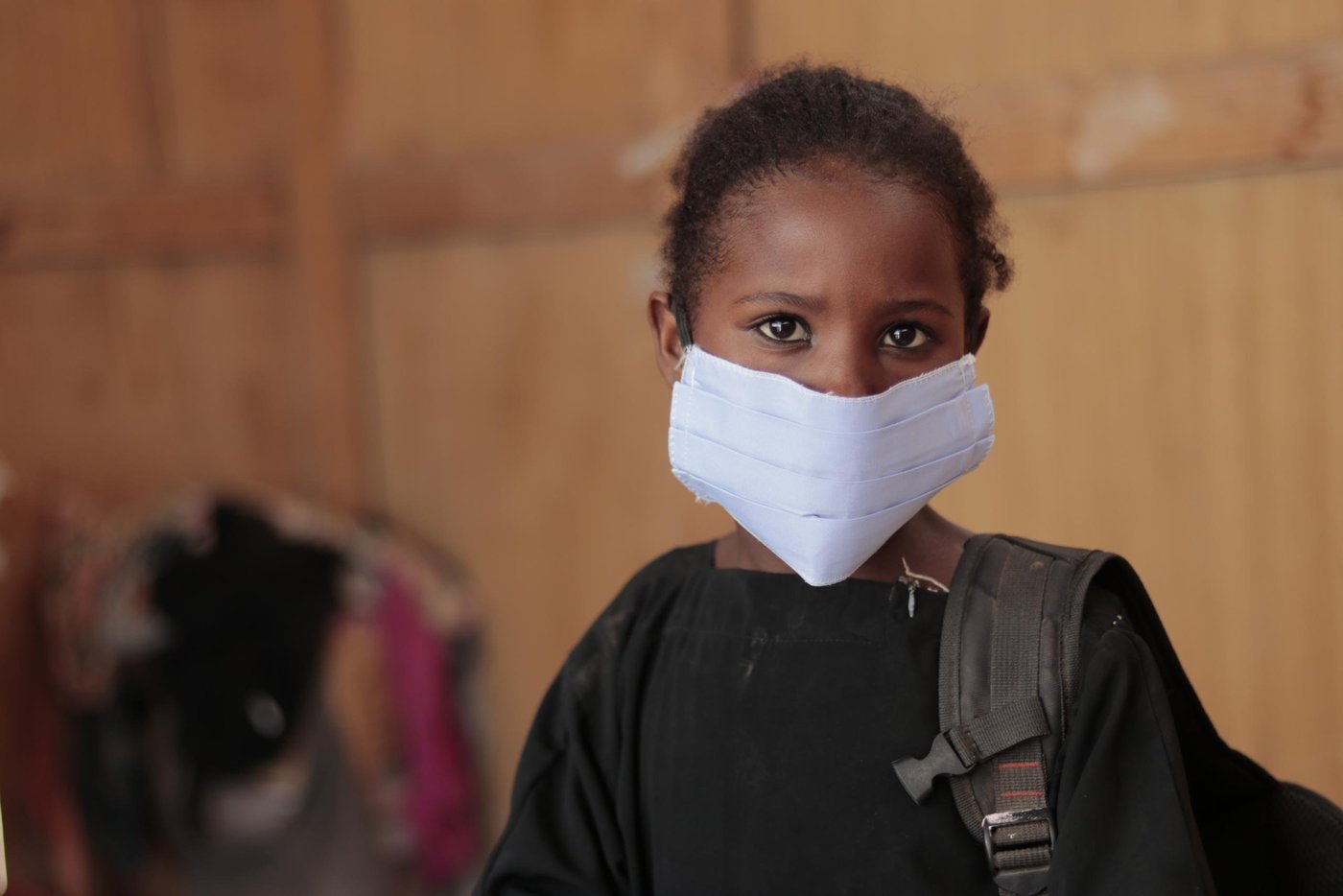Yemeni parents may have lived through five years of bombings, or had to flee their homes, but they still care deeply about their children.
Here are six questions that parents and children are asking themselves.
1. Is my school dangerous?
The pandemic has made many parents worry about safety. But for parents in Yemen, this is not a new question. Before Covid-19, the war left many schools riddled with bullets or in ruins.

Schools in Yemen have been bombed, damaged, destroyed or occupied at least 380 times since 2015, even though they are meant to be protected under international law. By 2019, UNICEF found that one in five schools could no longer be used because of the conflict. Even school buses have been hit. That’s a lot for parents to deal with, before they even start thinking about the virus.
The solution? We have to ensure that any armed group attacking schools is held accountable. This is something the Norwegian Refugee Council (NRC) works for at the highest levels, and has spoken about at the United Nations this month.
Support our Covid-19 emergency appeal today
What does a school in Yemen look like? Watch this short video to find out:
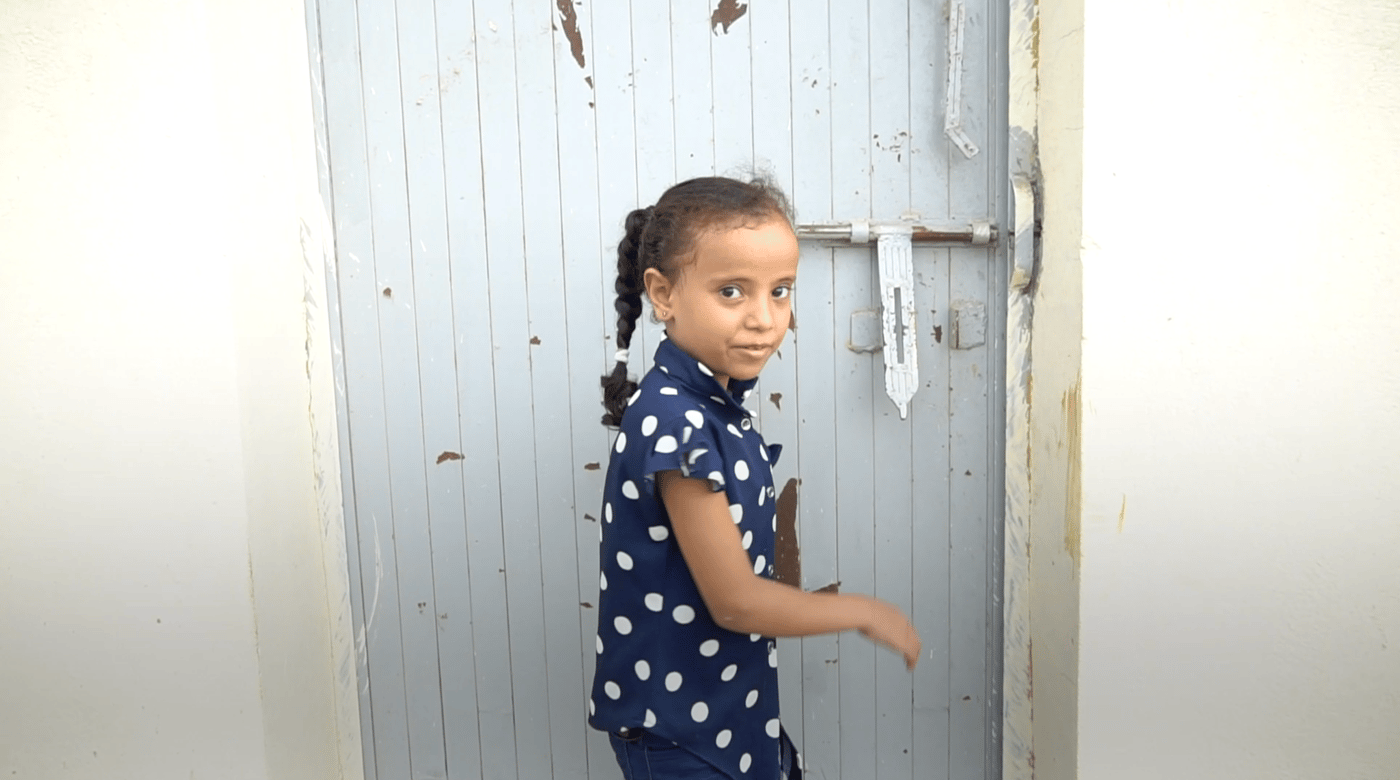
We have also been repairing and repainting schools, and building additional learning spaces.
2. Will there be enough spacing in class?
A classroom in Yemen can look very different to elsewhere in the world. Not only are many school buildings damaged, but the desks, doors and windows have often been destroyed. This can leave children sitting on the floor, like at Mohammed’s school.
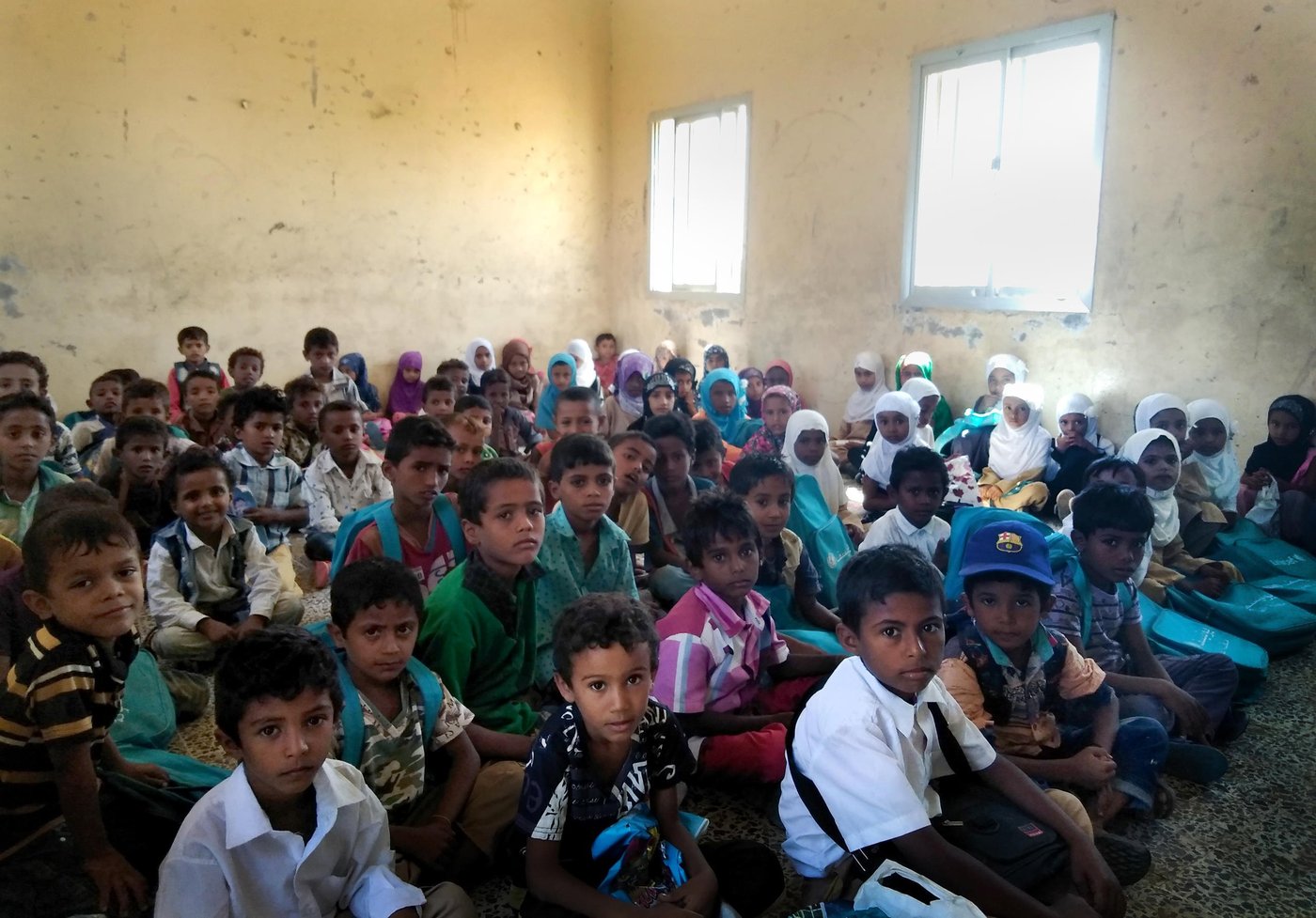
It can even mean learning in a tent or a straw hut, like Yahya had to. He could not bear the heat and the humidity, and it was extremely difficult for his teacher too, but it was all they had.

On top of this, hundreds of thousands of children have fled the war, and are now being squeezed into classrooms wherever they have settled. Most don’t have textbooks, exercise books, or even pens.
The solution? Not only do we repair classrooms and build new learning spaces, but we fill them with desks, boards, and chairs, and even provide solar-powered lighting and fans.
Support our Covid-19 emergency appeal today
These changes have transformed the learning experience. A new classroom does not stop children missing their old friends and teachers, but it offers them a more normal childhood. Yahya no longer needs to suffer in the heat, and Mohammed doesn’t have to sit on the floor.
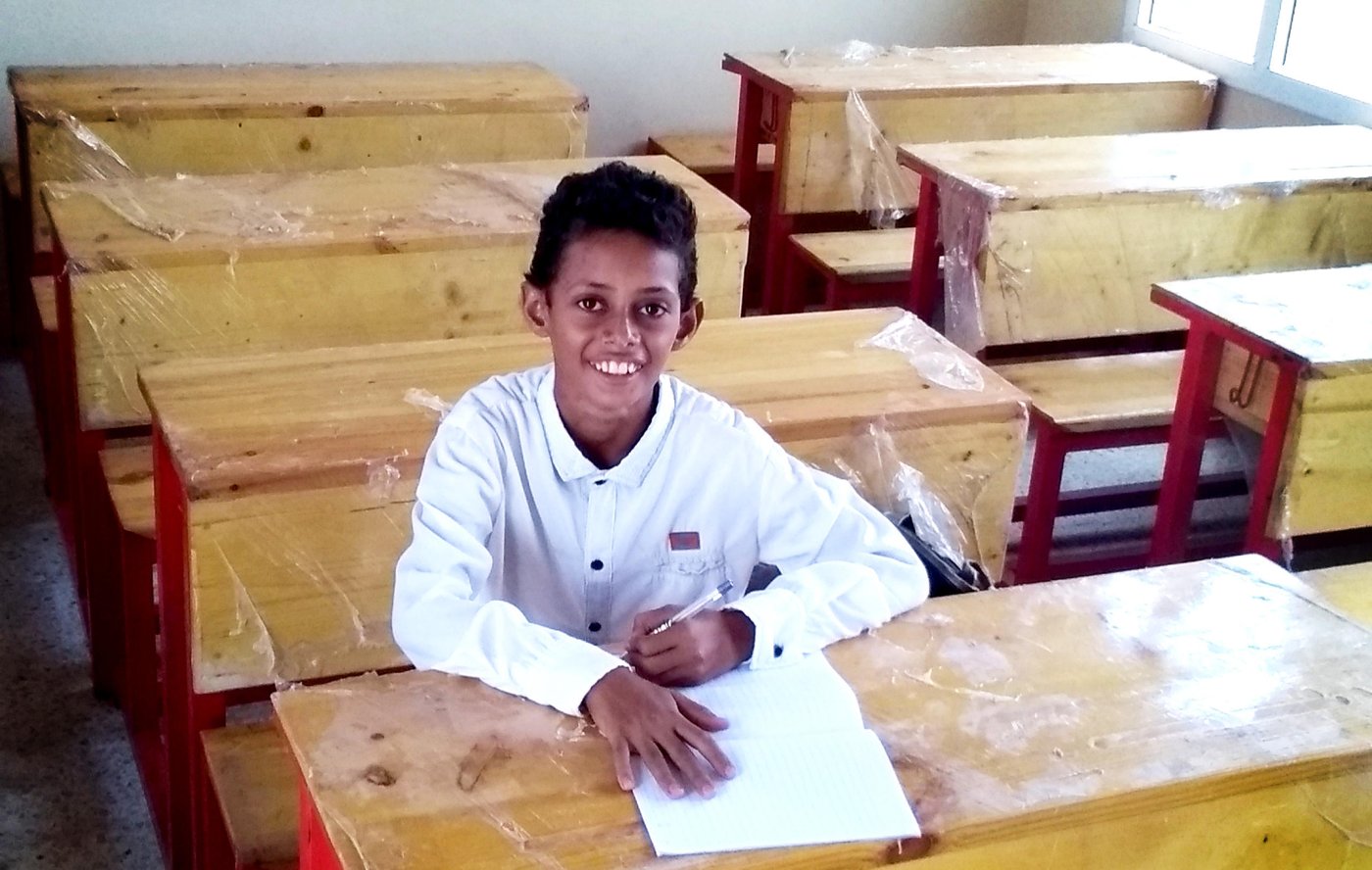
3. Where will we wash our hands?
This is an especially tricky question in Yemen, already one of the most water-scarce countries in the world. The war has only made things worse: water tanks have been bombed and neglected waterpipes are falling apart.
Parents in Yemen – like everywhere else in the world – want gloves, masks, and hand sanitiser for their children. But too many schools don’t even have bathrooms or running water, and soap is a luxury for millions of families without enough to eat.

The solution? We build water points for students to get clean drinking water, and toilets that are hygienic and safe.
Every school that NRC supports also receives a hygiene pack for each child. Even during the school closures, our teams have continued building and repairing water and sanitation facilities to allow schools to reopen safely.
Support our Covid-19 emergency appeal today
4. What about lunchtime?
Sundus is only eight, but her teachers say she is a smart and sensitive child. She’s been through a lot for a child so young, having been forced to flee her home.
Even when the fighting moved on and she could return home, she and her family struggled to get enough to eat. Sundus often went to school hungry and couldn’t concentrate in class.
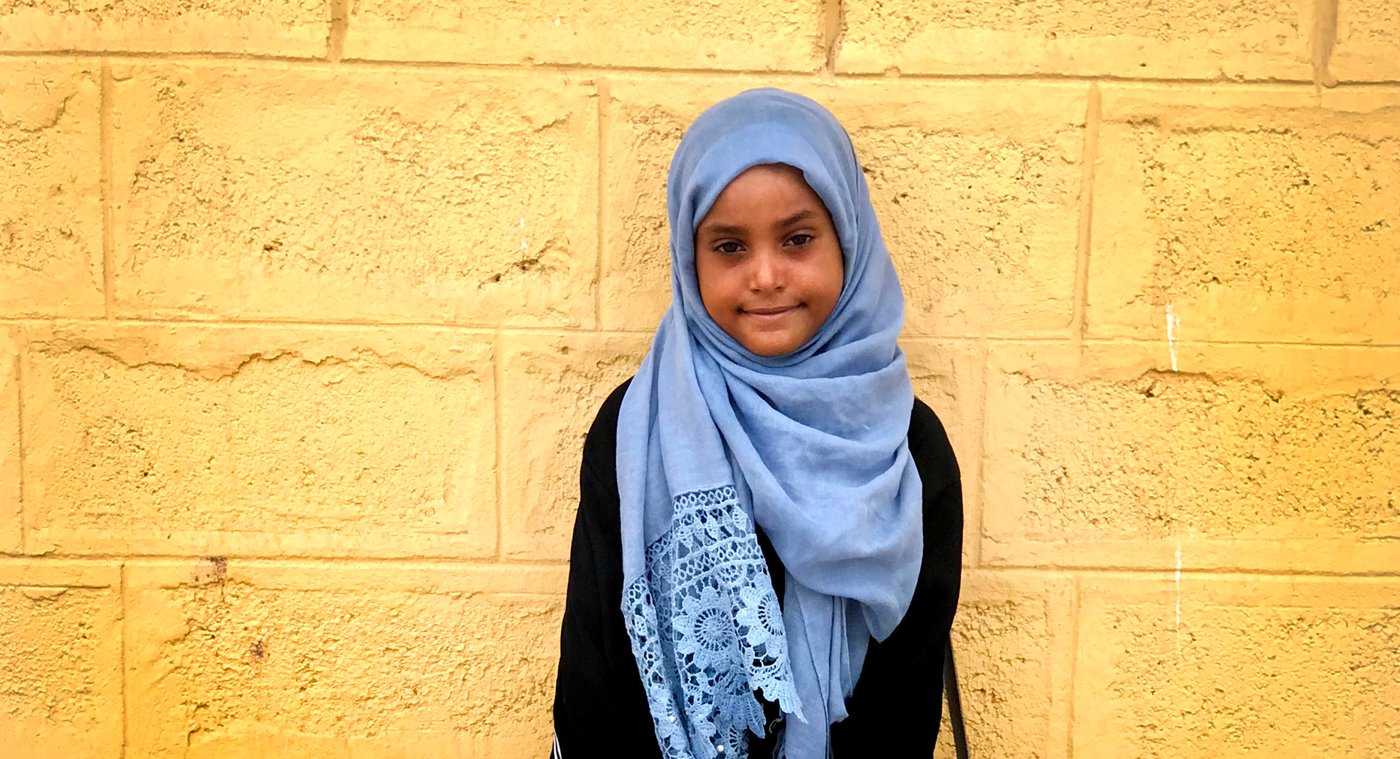
The solution? After Sundus joined Al-Shadely school, which NRC was supporting, she received high-energy biscuits in class. “I like the taste of the biscuits… and my siblings do too! So they usually wait for me to come home from school, to eat their share,” she grins.
Children who can’t get enough to eat at home – a serious problem in Yemen, where two million people are in “crisis” levels of hunger – can find a lifeline at school.
5. Are our teachers prepared?
Saeed is a headmaster at Saif Bin Dhi Yazan school. But there’s a catch: he isn’t paid. Saeed is one of six volunteer teachers at his school, who essentially run the classes for all 300 students.

This is not an isolated case. Over 130,000 teachers in Yemen have not received a salary in four years. Communities often provide gifts of milk and food, but many teachers are surviving through odd jobs and small stipends from aid agencies. Saaed hires out his small motorbike and raises sheep.
Read Rahma’s story: Teaching on an empty stomach
The solution? NRC is one of many aid groups pushing for an agreement that would pay teacher salaries. In the meantime, we provide teaching kits full of supplies, and train teachers in class management, lesson planning and child protection.
And we also give out something else children need. “I got a schoolbag full of notebooks, pencils, pens, erasers, crayons, rulers and pencil sharpeners,” Saeed’s daughter Raghad explains happily. “When I got home, I opened the bag to start arranging my notebooks for homework and lessons. I was so happy to have all these things to learn with.”
6. Can’t we learn from home?
Another committed father, Ahmed Ali, has been trying to help his children revise their lessons while the schools are closed. But it’s difficult without a table, chairs, or any way to keep the tent that they share cool.
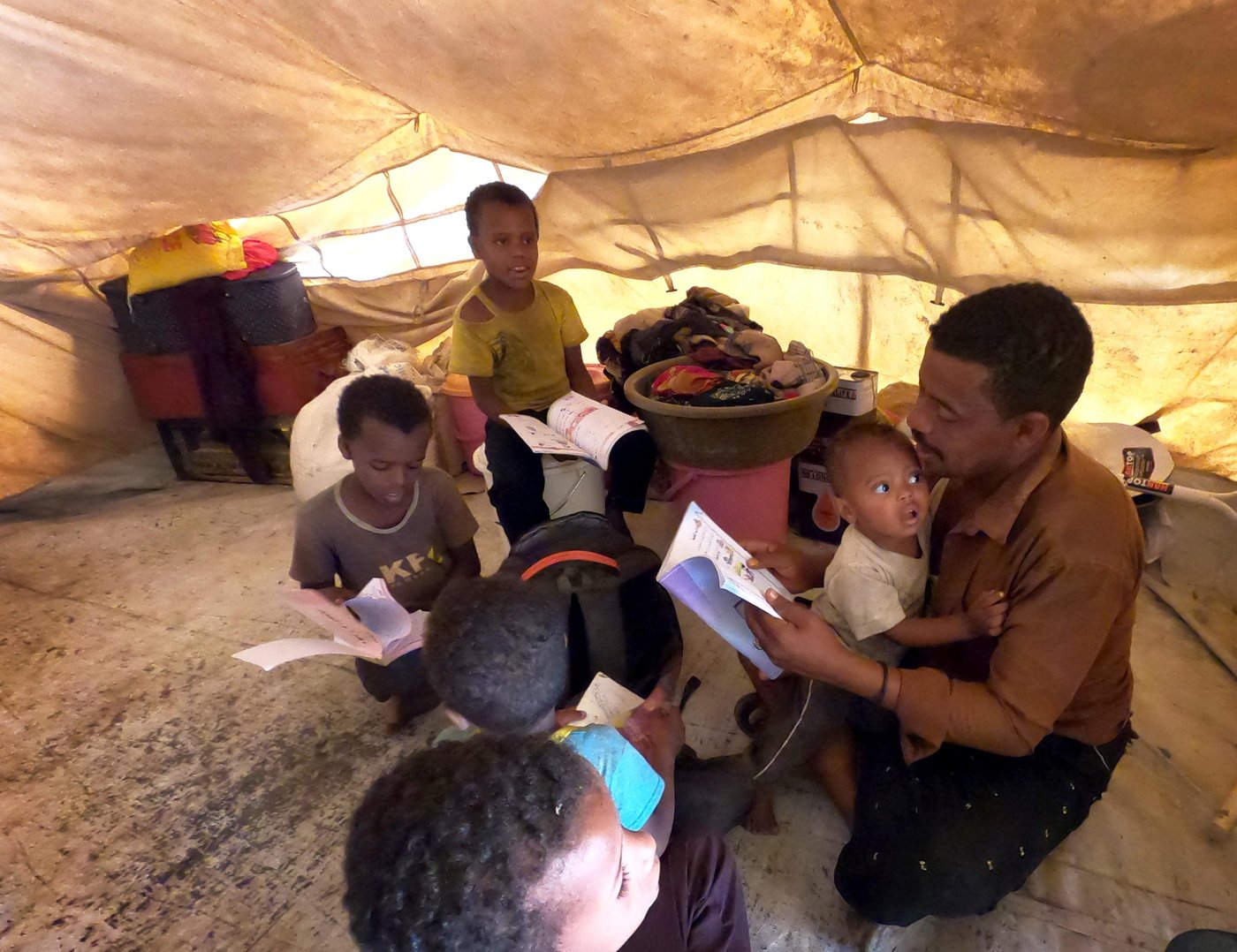
This is the reason distance or home learning is so difficult in Yemen. Too many children don’t have access to electricity, much less television or internet access. When we recently surveyed hundreds of families across the country, almost all of them (93 per cent) said that no learning was taking place at home.
Schools are more than a curriculum; they are important places for forming friendships, building confidence, and play. They are also safe spaces, as school-going children are less like to be forced to work, fight or marry young.
The solution? We must continue making schools safe against Covid-19 so children can return. The Ministry of Health in Yemen is now asking for "extraordinary support" in the form of water, cleaning materials and other assistance, so that schools can reopen with strong hygiene measures in place.
Support our Covid-19 emergency appeal today
Our promise for Saeed and Raghad
Schools in Yemen have faced difficulties for years, and now the pandemic is adding to the problems. Two thirds of displaced children in Yemen said they feel worse now because of Covid-19, and these were already children experiencing extremely high levels of distress.
But even so, most children want to return to school. They have gone back as soon as the mines and rubble are cleared, even when there was nothing to sit on and no books to learn with. And despite Covid-19, more than two thirds of parents want to send their children back to school.
“Parents tell us the coronavirus is less dangerous than the alternative,” says NRC’s Education Coordinator Yasin Saed. “At least at school the children will learn, so when things get better they will have some future."
Remember Raghad, who so enjoyed her new notebooks and pens? As schools in Yemen reopen, she tries to explain what this means for her. “We want to learn. That’s our dream.”
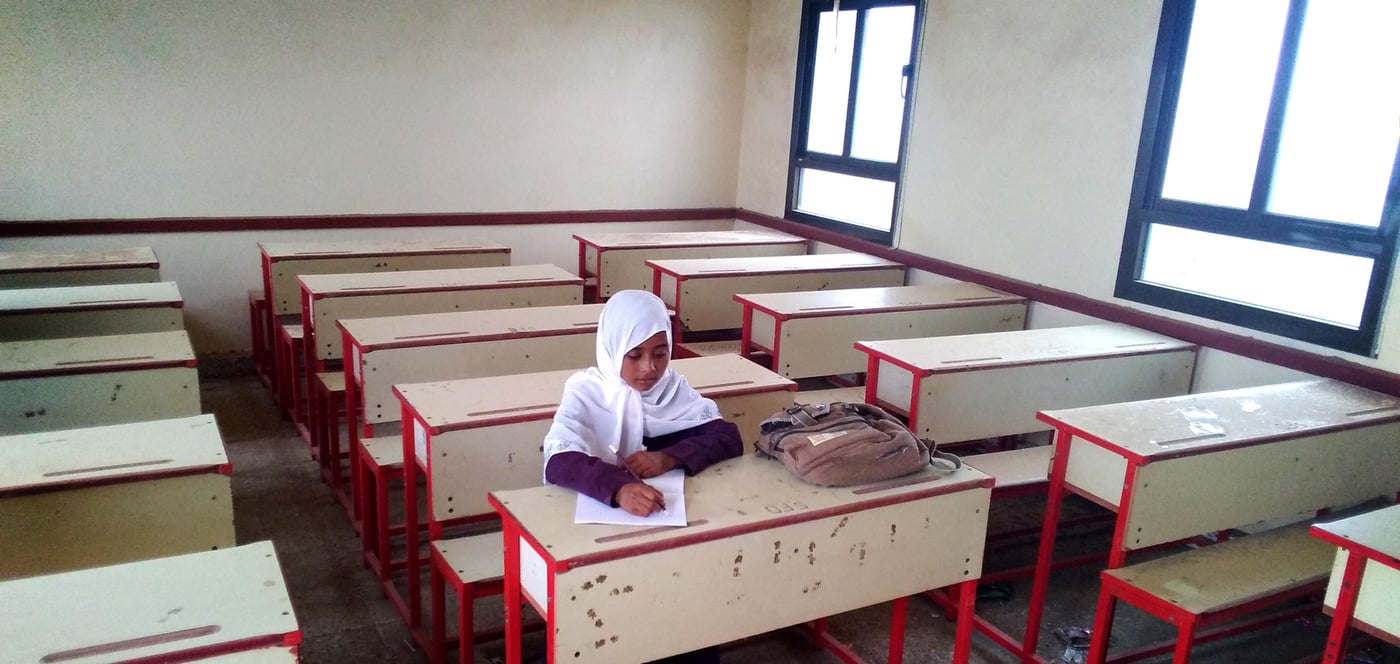
Her father Saeed says he will continue to run the school, even without the salary he has long hoped for. “If we don’t teach these children,” he says simply, “then they’ll have no education.”
NRC’s Yasin says so many of the communities we work with are determined to keep going. “The attitude is: we survived all these problems and war, so this coronavirus is not going to stop us. I think the least we must do is help them.”
The schools featured in this article have been assisted thanks to humanitarian funding from the European Union and the Yemen Humanitarian Fund.


